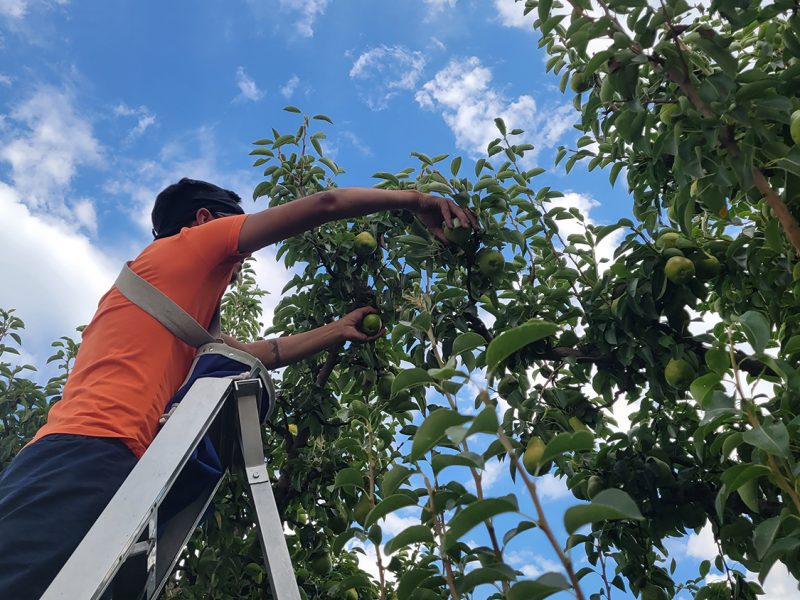Two new initiatives are digging into solutions to the perennial labour shortage facing BC producers.
A report released by the BC Fruit Growers Association on March 31 analyzes temporary foreign worker programs in the US and Canada with a view to helping smaller operations access labour.
The report proposes a pilot project that could reduce costs and barriers to SAWP (Seasonal Agricultural Worker Program) employers that could benefit smaller-scale growers.
“The Okanagan has 4,500 to 5,000 temporary foreign workers each year. And that’s really helped out our labour situation,” says BCFGA general manager Glen Lucas. “But it’s not evenly distributed. Those workers, because of the way the program operates, tend to be concentrated on larger farms.”
BCFGA would like to see the definition of “employer” expanded within SAWP so that labour is more accessible to small-scale producers whose farms may not meet current requirements.
Temporary farm workers who enter the US under the H-2A program have greater leeway to move between employers than those participating in Canada’s SAWP, which limits workers to a single, specific employer. The introduction of “Employer Groups” in the H-2A program allows a group of producers to combine resources, allowing smaller farmers to meet minimum program requirements.
BCFGA proposes a pilot project in which it could be appointed as an association-agent for a group of employers. The association could then file an LMIA (labour market impact assessment) on behalf of a group of employers, including smaller operations that might not otherwise participate.
The association could also provide additional oversight and improve communication among employer groups, the report says.
BCFGA is working to define what the program could look like in BC and how it could coexist alongside the existing program.
“We don’t want to have a risk that there could be impact on the regular program because it’s so important to growers at large,” Lucas says.
The association intends to survey stakeholders to gather information documenting the pilot’s need.
Nationally, the Canadian Agricultural Human Resource Council is also launching a survey. It will focus on the post-pandemic labour market facing the Canadian agricultural industry and hopes to survey at least 800 stakeholders by the end of the month.
CAHRC has conducted regular surveys of the farm labour market in Canada, and the current survey complements that work.
Feedback will help guide future action on the growing workforce crisis and provide input on opportunities and barriers to participation of under-represented groups in the industry.


 Carbon tax relief begins
Carbon tax relief begins